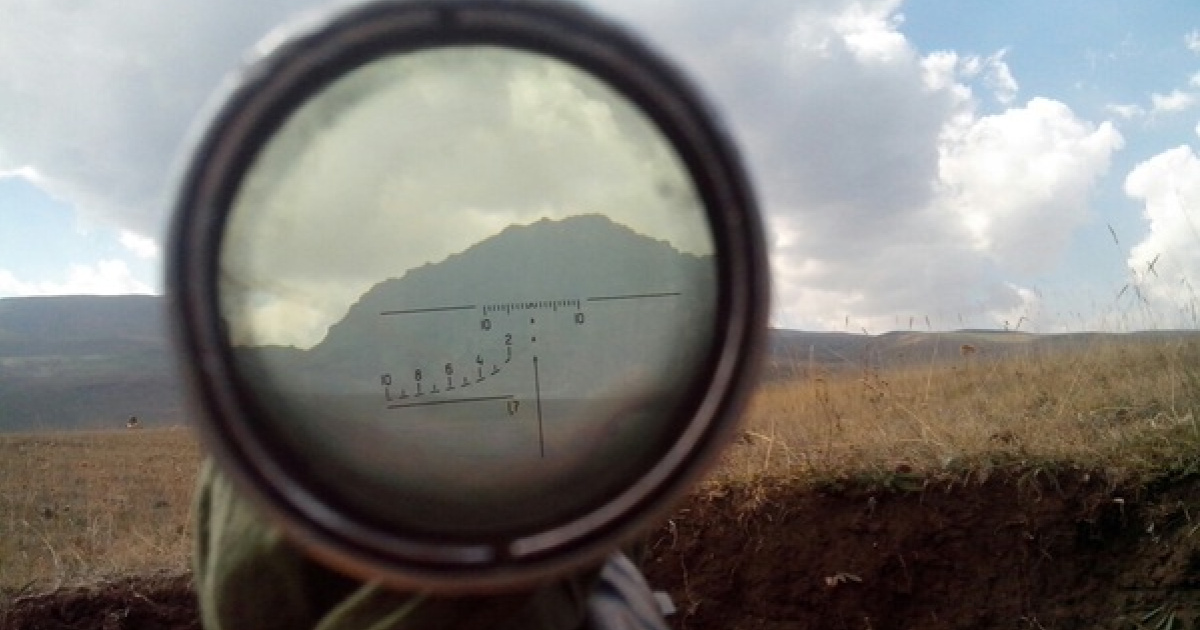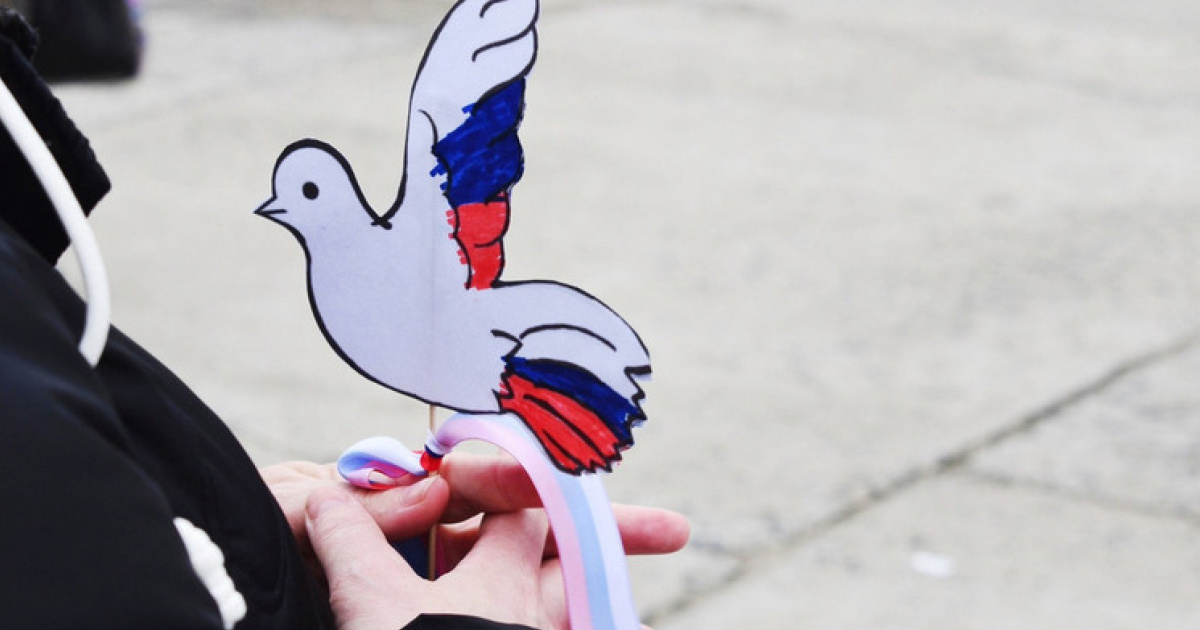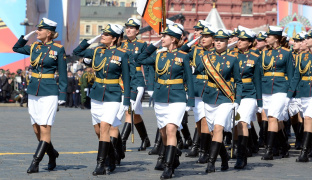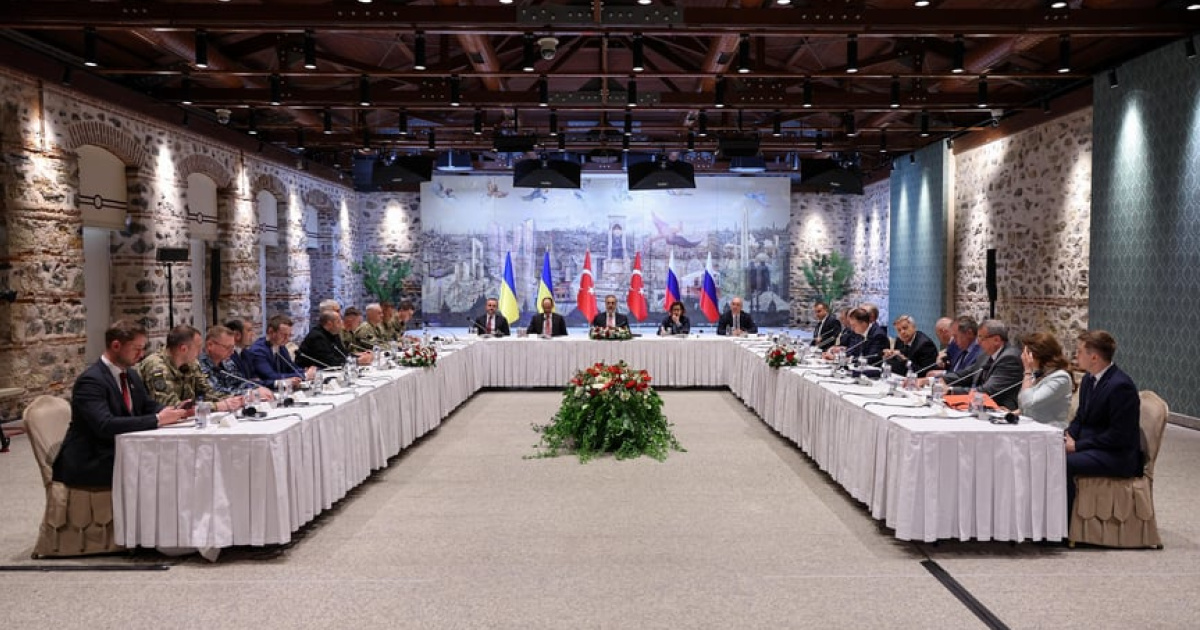The devil only knows how to call the actions of the "invaders" towards Ukrainian enterprises. They call it "the introduction of external management". But every normal person understands that this is just a seizure of business. And was there a seizure, or was it an imitation? Because what the "managers from the DPR" will control at the enterprises of Akhmetov? Sounds like a nonsense... Even the Russian media, habitually "guarding the interests of the republics", cannot praise them for this very "external management", because they clearly understand: something is wrong here...
"Four oligarchs are trying to put pressure on the authorities of the DPR and LPR"
The odious Komsomolskaya Pravda also tried to figure out "what is really behind the "nationalization" of factories in the DPR and LPR" and concluded that "Donbass got in a situation where each subsequent move makes everything even worse".
"Donbass clearly shows what happens if the authorities allow the "privatization" of the economy by the oligarchs' clans. History itself has made an extremely harsh experiment in which the most unfavorable conditions are set. The war only highlights the main things. Oligarchic and privatized by a few people economy is not viable. This is a verdict to the system that Ukraine has built", - writes the daring Kremlin Komsomolskaya Pravda, referring to Akhmetov, Taruta, Pinchuk and Kolomoisky as people who "control a quarter of the income of a large European country". However, at the same time the newspaper risks to remind the Russians that the same oligarchic economy exists in their country as well.
The newspaper claims that "the authorities of the DPR and LPR tolerated" the Ukrainian status of enterprises on their territory "because the oligarchs paid workers salaries, but this could not last forever".
"Both republics (their administrations do not always act in such a coordinated manner) decided that Ukrainian enterprises in the territories either transfer to the jurisdiction of Donetsk and Luhansk or will have to greet "external managers without a change of ownership". The term "nationalization" is carefully avoided. Nevertheless, this is it. Akhmetov, Kolomoisky and others were in a difficult situation. Their interests are not in the Donbass. And not even in Ukraine. "Slaves" are working in the Donbass. Ukraine is only a transfer link, the purpose is offshore. "Slaves" rebelled, what to do next?", - KP wrote.
Then the newspaper claims that it were not the "nationalists" who staged the blockade, but that "four oligarchs are trying to put pressure on the authorities of the LPR and DPR".
"Yes, the decision about "external management" was not the smartest. But it is clear that the "republics" lack money catastrophically. It is impossible to reach an agreement with Ukrainian oligarchs. They tried to scare them. And got frightened in return. Actually, it is called a zugzwang. This is a position in chess, when any of your moves makes your situation worse. Now Ukraine, the DPR and LPR, the oligarchs and, most sadly, ordinary workers of Donetsk and Luhansk are in zugzwang", - says the Kremlin newspaper.
At the same time, it unequivocally admits that "the republics cannot conduct this nationalization seriously".
"External administration" without a change of ownership is like a girl of "low social responsibility" without losing her virginity. It does not exist. 1918 showed well what happens when the owners are removed, and the commissioners are brought in. Everything just stopped in Soviet Russia. The author of these lines thoroughly studied the documents of that era. At first Lenin was perplexed why the workers and commissars were robbing enterprises instead of working with the hundredfold force - after all, the plants became "ours"! Then he sharply changed his views, and began to lure the former owners", - Komsomolskaya Pravda teaches us history.
And sighs: "If these huge factories were managed not by crazy moneybags, it would be easier to reach an agreement".
"No one knows what will happen next. But we dare to assume. Of course, there will be no nationalization in its pure form. And if it happens, Donbass will become a zone of humanitarian catastrophe like Sudan, and Muscovites will carry water to the points of collection of humanitarian aid. But if the oligarchs "do not sacrifice their principles", they will lose their assets, while the DPR and LPR, economically cut off from Ukraine, will eventually become Russian. Not Moscow, but the stubbornness of Ukrainian oligarchs push the republics into Russia's embrace. The oligarchs will not accept this, and...", - the newspaper predicts.
"And on this "and" I would like to put an end. Because the further deaths of peaceful people in the Donbass is an unacceptable thing. Military crimes against civilians are already worth three Hague Tribunals. But, alas, what is happening now, perhaps, will increase the number of victims. And this, of course, is a shame and shameful disgrace. And this must be stopped immediately", - the KP concludes with a call to certain forces.
"Avakov and Turchynov will take the stage..."
The newspaper Izvestia analyzed not the very "nationalization" in the "DPR-LPR", but the reasons that led to it.
The newspaper cites the opinion of a "political analyst Rostislav Ishchenko, president of the Center for System Analysis and Forecasting". He believes that the "nationalization" carried out by the militants is "a response to the trade blockade, which was happening for the past two years through the demarcation line and did not worry anyone in Kyiv".
Political analyst Ishchenko wonders why "Ukraine demonstrates tremendous helplessness" in the conditions of blockade of the "republics": "The only more or less serious attempt of the deblocking was done by some people whom the Ukrainian media called mercenaries of the oligarch Rinat Akhmetov. According to the same media, he lost about $ 800 million because of this blockade".
"We note that Akhmetov and his part of the parliament faction Opposition bloc, which is not formally in the government coalition, reliably supported Poroshenko's initiatives with their votes. And then they shared profits from trade with the Donbass. A simple conclusion arises: the blockade erodes the political and financial support of Poroshenko", - Russian political analyst observes.
He accentuates that the "official organizers" of the blockade are Samopomich party, associated with the oligarch Kolomoisky, who in 2014 lost to Poroshenko the struggle for actual control over Ukraine, and the Tymoshenko's party Batkivshchyna. The “Nazi” Svoboda party, the civil corps Azov and the remnants of the "Right Sector" banned in Russia expressed support for the blocking of the “republics”.
As a result, in Ishchenko's opinion, "the actions of Batkivshchyna, Samopomich and "patriots" create an intolerable situation for Poroshenko".
"The longer the blockade continues, the more amusing the power of the president becomes, unable to cope with the miserable pile of marginalized people... Poroshenko is doomed to try to use armed force to stop the blockade, or passively observe how he loses his authority in an accelerating pace", - political analyst predicts.
Later, in his opinion, "Avakov and Turchynov (or one of them) will take the stage and say that selfish politicians have unleashed an internecine conflict in Kyiv in conditions of "external aggression". This will make it possible to multiply Poroshenko, Tymoshenko and Kolomoisky by zero... An open Nazi dictatorship will be established in Kyiv, which will try to "consolidate" Ukraine using methods of open terror and intensification of hostilities. At the same time, the "new" "patriotic" government will try to quickly restore trade with the Donbass. Only the schemes will change, and Ukraine will buy coal at a higher price".
"If Ukraine responds with a complete blockade, there will be nothing to eat in the "LPR-DPR"
The newspaper Novaya Gazeta is famous for the reasonableness of its publications. It shares an opinion of its famous journalist Yulia Latynina, who believes that the "external management" introduced by the "republics", "may have much more significant strategic consequences"...
The author believes that the "expropriation" of enterprises by the invaders "means that neither in Europe, nor in Ukraine there will be no legal opportunity to purchase something officially produced in the "LPR-DPR".
"The consequences of this cannot be overestimated. Despite the fact that the main reason for maintaining economic ties between Ukraine and the separatists was the most banal corruption, such ties had important strategic advantages. The flow of money, on the one hand, economically supported the separatists. However, it also meant the need for at least some kind of ties with Ukraine. It can be extremely dangerous to break these ties. The President of Georgia Mikheil Saakashvili assured himself of this in due time. There was solid goods traffic between Georgia and South Ossetia, and all the leadership of the republic was fed on contraband when he came to power. Saakashvili blocked the contraband, hoping that the Ossetian elite would have nothing to eat, and he would bring it to knees. Instead, South Ossetia became completely reoriented to receive Russian money. The only work in South Ossetia was to sit in the trench and fight against the Georgian fascism. The result was the war in 2008, the ethnic cleansing of Georgian villages in South Ossetia, and ultimately - the defeat of Saakashvili's party in the election", - the observer of Novaya Gazeta writes.
She believes that "Ukraine faces now the same dilemma": "If it responds to expropriation with a total blockade, it means, roughly speaking, that there will be nothing to eat in the "LPR"-"DPR". Absolutely. The only autochthonous source of the local GNP will be the pasture: potato and cabbage from the own vegetable garden".
The author reminds that "the United Kingdom and the USA adopted the so-called Morgenthau Plan in due time in 1944 under the influence of Soviet agents. It involved the complete deindustrialization of Germany and its transformation into the agrarian country". "The plan was disrupted just because someone did realize that in the case of deindustrialization of Germany its population would elementary not survive", - the author points out.
"The ban on exports for the "LPR"-"DPR" is the Morgenthau Plan. This is the transformation of the industrial zone into the delta of the Okavango River where people survive with the help of subsistence farming, with the only difference that there were no apartment houses, communications and heating mains which in principle are incompatible with subsistence farming in the Okavango Delta. This is the return to the Iron Age, made of scrap metal and broken drains", - the observer of Novaya Gazeta notes.
"The Kremlin has only two options to prevent this. The first is to keep the Donbass Hamas at its own expense. It is very expensive. This is corrupt and lawless bottomless pit that you will never fill. And the second is to annex the Donbass. This is a new round of sanctions, total international isolation and, perhaps, war", - the author concludes sadly.
"It is time that Kyiv regime found itself at the scrapyard of history"
The pro-Kremlin website Pravda.Ru publishes an interview with "the leader of the Slavic Party", "the chairman of the Committee of the state construction of Novorossia" (it turns out that there is such) certain Vladimir Rogov under such a magnific heading.
He begins with explanation to the Russian reader why Russia "did not recognize the republics as state formations immediately after their formation and up to now": "And what to recognize, when there is neither Mariupol, nor Kramatorsk or Sloviansk - all these cities are not under the control of the people's republics, correspondingly, it is at least incorrect to strengthen that occupation which is currently realized by the armed rabble of Ukraine, the Armed Forces od Ukraine".
But Rogov calls the recognition of the so-called "documents of the DPR and LPR" "absolutely logical step".
"Interestingly, they admit, among other things, that it is good for the young people to receive diplomas of higher educational institutions of the people's republics. So now there is no need to go to retake something to Rostov, Voronezh or other cities where the agreements on recognition and completion of examinations are concluded. Now everyone with a higher educational institution's diploma of the republics of Donbass can immediately get a job in Russia or study further. This is a great help to the young people and, importantly, an opportunity for closer integration of the people's republics with Russia. We understand full well that people rebelled against the regime exactly because the opportunity to speak their native language and live in the Russian world", - Rogov states.
He reminds that "similar actions in relation to Abkhazia and South Ossetia were on the part of Russia in 2008".
"Even these decisions were not at the level of the president's decree, but at the level of the president's assignment to the relevant structures and departments at that time. So the status of the people's republics of the Donbass, in fact, is higher than the same way that Abkhazia and Ossetia passed in due time", - the "leader of the Slavic Party" rejoices.
"These will be the moments when not only Donetsk-Luhansk, but also Zaporizhia, Kharkiv, Odessa and others will be recognized, and what form of state formation it will be - time will tell. But this process already launches those things that not only place the legitimacy of the so-called Kyiv self-proclaimed authorities in question, but, in fact, explain to residents of the rest of the territory of the post-Ukrainian space: guys, run, get passports, you will be able to work in Russia", - Rogov kept dreaming.
Then he states that "we cannot let the opportunity slip when it is possible to free all the post-Ukrainian space".
"But the liberation of territory as far as Lviv will give an opportunity to vaccinate against Nazism and deprive of the opportunity to create any lawless diversionary formations", - Novorossian Rogov believes.
"Petro Poroshenko came in 2014 as provoker, he led people for slaughter, and we see that the way from provoker to can-carrier is very fast in the former Ukraine. I think that now Petro Poroshenko's dreams are not about the second term, no matter how he sets up his comb, but to stay alive, relatively healthy and free. But the heaviness of capital which he stole over these years is a deadly danger for him, because no one will let him live in security in the West with this money… I think that Poroshenko's days are numbered, and there will be many interesting events then. It is possible that the official version will be that he drank too much sweet or bitter. Because living Poroshenko is still a danger to everyone else who will stay free. He can testify", - Novorossian Rogov mysteriously concludes.
"The aspiration to draw the country into a protracted conflict with Moscow…"
The governmental Rossiyskaya Gazeta seriously took offense at the first president of Ukraine Leonid Kravchuk because of his statement about the fact that "the confrontation between Russia and Ukraine has been going on for 300 years".
"In his understanding, all began in 1654, when the meeting of the Zaporozhian Cossacks headed by Hetman Bogdan Khmelnitsky, later named the Pereyaslav Council, decided to unite the territory of the Zaporozhian Host with the Russian Empire on January 18. The fact that there was no Ukrainian state at that time, as it did not exist afterwards, and a significant part of the territory of present-day Ukraine in the geographical reference books of the early 20th century was designated as Little Russia, does not embarrass Kravchuk. However, without getting into the history that Kyiv does not know anymore how to adapt to own political needs, it should be recognized that indeed the confrontation between Russia and Ukraine began much later", - the newspaper states.
"And the "founding father" of this political paradigm became no other than the first president of Ukraine", and "Kravchuk's aspiration to draw the country into a protracted conflict with Moscow ended in defeat for him in the election", RG insists.
Reminding Kravchuk those times when "a new term "kravchuchka" - a shopping stroller that replaced the Soviet string bag, appeared in the Ukrainian language, Rossiyskaya Gazeta states: "The confrontation between Kyiv and Moscow did not begin 300 years ago, as it is argued by the former Ukrainian leader, it arose on the initiative of Kravchuk in April 1992, when he signed the Decree on the passing of the Black Sea Fleet to the administrative control of the Ministry of Defence of Ukraine, with which Moscow could never agree for obvious reasons".
"This confrontation strengthened in February 1994, when Ukraine refused to pay debts for the supply of Russian fuel, which has reached $17 billion by the time when the first president of Ukraine began to implant Ukrainian language, debarring a large part of the population the right of speaking Russian that was native to them", - RG asserts.
According to the newspaper, "the aspiration to draw the country into a protracted conflict with Moscow, which, in fact, Leonid Kravchuk did during his presidency, ended for him in characteristic defeat in the election".
"Kravchuk accuses today politicians who came after him of insufficiently close relationship with the European Union - this ostensibly prevented Ukraine from "reaching the level that the country could reach". However, still no one allows Kyiv in Europe: in this connection, the statement of the head of the European Commission Jean-Claude Juncker should be quoted. He is convinced that Ukraine will not be able to become either a member of the European Union or a participant of the North Atlantic Alliance for the next 20 to 25 years. The country has firmly settled in the European dressing room by the efforts of such Ukrainian leaders as Kravchuk. Where, in fact, the staff that serves the interest of Europe should be", - Rossiyskaya Gazeta, offended by Kravchuk, concludes.
The review was prepared by Mykhailo Karpenko, OstroV




